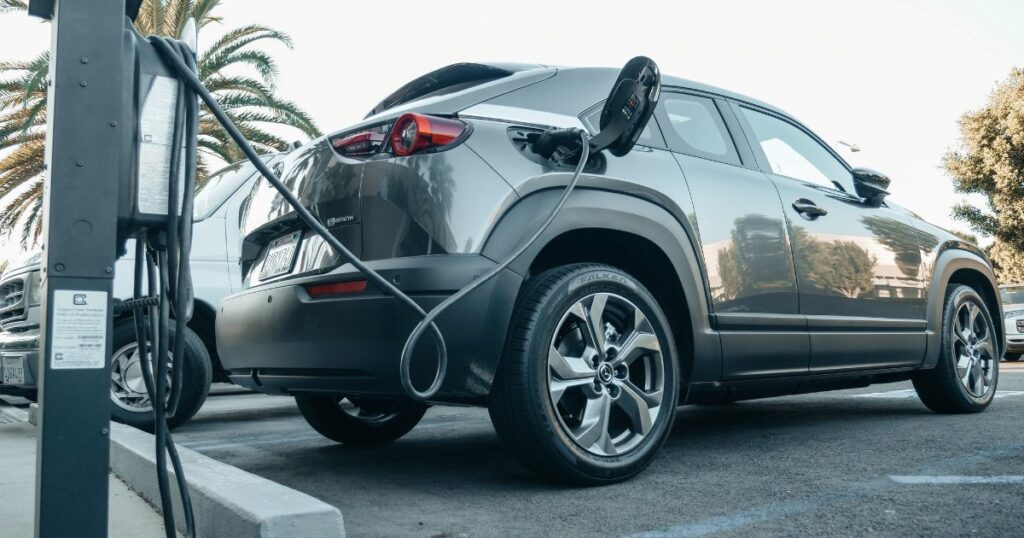With EV sales breaking records every year, the demand for professional electric car transport services is rising faster than ever. Transporters who fail to adapt risk falling behind in this new automotive era.
The electric and hybrid vehicle market is not just a trend—it’s a seismic shift. As more consumers choose sustainable options, automakers are rapidly phasing out gas-powered models. This movement has created a critical need for specialized transport services tailored to the unique requirements of electric vehicles (EVs).
Is your fleet ready to handle the electric vehicle revolution that’s reshaping the auto industry across North America? US Canada Auto Transport is here to guide you through.
Why EVs Require a Different Transport Strategy
Unlike traditional internal combustion engine vehicles, EVs present unique challenges in logistics and handling. They are heavier due to large lithium-ion battery packs, require temperature-sensitive care, and have strict protocols for charging and discharging during transport.
For example, the average EV weighs 10-30% more than its gas counterpart. Transport trailers and loading procedures must accommodate that additional weight without compromising safety. Moreover, improper handling can cause severe damage to sensitive electronic components or battery systems—costing thousands in repairs.
US Canada Auto Transport recognizes this shift and has made strategic investments to modernize its fleet and train its staff for the growing demand in electric car transport.
The Rising Demand for Electric Car Transport

EV registrations across the U.S. and Canada have seen double-digit growth annually. With brands like Tesla, Rivian, Ford, and Hyundai leading the charge, dealerships, auctions, and private buyers now require EV transportation on a regular basis. The need for reliable cross-border shipping has never been more urgent.
Here’s a quick breakdown of key factors driving this demand:
- Government Mandates
Both the U.S. and Canadian governments are pushing for aggressive EV adoption through incentives and regulations. These mandates have increased EV imports and sales across state and provincial borders. - Expansion of EV Dealership Networks
Many dealerships now require inter-state or cross-border vehicle delivery for hybrid and electric models to meet consumer demand. - Online EV Sales Growth
With platforms like Carvana and Tesla.com allowing direct-to-consumer sales, vehicle transport companies must adapt to EV-specific shipping needs more frequently.
Adapting Fleet and Operations to Meet EV Needs
Transporting EVs safely and efficiently requires more than just basic training. It involves significant upgrades in equipment, safety protocols, and procedural knowledge.
Here are four core areas where US Canada Auto Transport is innovating to stay ahead of the curve:
1. Specialized Loading Equipment
EVs often have a lower ground clearance and are heavier than standard vehicles. Ramps and hydraulic lift systems must be adjusted to avoid undercarriage damage or bottoming out. US Canada Auto Transport equips its fleet with adjustable tilt decks and soft-strap tie-down systems to ensure safe loading and unloading.
2. Battery Safety Protocols
Each vehicle is checked for battery charge level before transport. Ideally, EVs should ship with 20-50% charge to avoid battery stress or overheating. Our team follows strict procedures based on manufacturer guidelines for safe disconnection and reconnection when necessary.
3. Enhanced Driver Training
Not all drivers are experienced in handling electric vehicles. Our operators are trained specifically in:
- Emergency protocols in case of battery failure or thermal runaway.
- Identifying high-voltage components and adhering to no-contact zones.
- Safe storage and parking practices during layovers.
4. Cross-Border Compliance for EVs
Electric vehicles often come with different customs documentation, battery transport certificates, and manufacturer-specific import requirements. US Canada Auto Transport ensures all paperwork and inspections are up to date before any EV crosses the border, reducing delays and potential fines.
Key Differences in Transporting EVs vs Gas Vehicles
| Feature | Traditional Gas Vehicle | Electric Vehicle |
| Average Vehicle Weight | 3,000 – 4,000 lbs | 4,500 – 6,000 lbs |
| Battery Considerations | None | Requires state-of-charge management |
| Ground Clearance | Higher | Lower, needs soft-strap tie-downs |
| Charging Needs During Transit | None | May require mid-transit charging or disconnection |
| Regulatory Documentation | Standard | May include battery and EV certifications |
Preparing Your Business for the EV Future
If you’re a dealership, auction house, or fleet operator, it’s time to evaluate your shipping partners. Ask if they are equipped to manage electric car transport with the precision and care these vehicles demand. It’s no longer a luxury—it’s a necessity.
US Canada Auto Transport has established itself as a trusted provider by staying ahead of the curve in EV logistics. Our commitment to innovation, safety, and customer satisfaction ensures your electric or hybrid vehicles arrive on time and in perfect condition.
What to Look for in an EV Transport Company

- EV-Specific Safety Equipment
Ensure your transport provider uses adjustable ramps, soft straps, and lift systems suited for heavier, low-clearance vehicles. - Trained and Certified Operators
Drivers should be trained in EV handling protocols, battery risks, and emergency procedures. - Transparent Pricing for EV Handling
Electric car transport often costs more due to additional care. Your quote should clearly reflect this. - Experience with Cross-Border EV Compliance
Look for companies with proven track records navigating import/export regulations for electric vehicles.
The Smart Choice for EV Shipping Services
Not all transport companies are ready for the surge in EV demand, but US Canada Auto Transport is. With five key service hubs across North America, advanced logistics tools, and a trained EV-ready team, we ensure each electric vehicle is handled with expert care.
Whether you’re a Tesla owner in Toronto or a Ford dealer in Seattle, our cross-border capabilities and customer-first approach set us apart. We’ve already helped thousands of customers transition smoothly into the EV era—and we’re ready to help you too.
Tips for a Smooth EV Shipping Experience
- Provide Accurate Vehicle Information
Let your transport partner know the exact make, model, and battery condition to ensure proper handling. - Request Pre-Transport Inspection
Always opt for a pre-inspection to document any prior damages and battery levels. - Plan for Delivery Timeframes
Electric car transport may take slightly longer due to charging needs and additional documentation. - Check Insurance Coverage
Confirm that the transport company’s insurance covers EV-specific risks such as battery damage.
Upgrade Your Vehicle Shipping Approach
As the auto industry shifts toward a cleaner, electric future, your transport strategy needs to evolve too. Choosing the right logistics partner can mean the difference between a seamless EV delivery and costly delays.
Let US Canada Auto Transport guide you through the complexities of electric car transport with ease, efficiency, and peace of mind. With proven expertise and a forward-thinking fleet, we’re prepared for the EV boom—are you?


